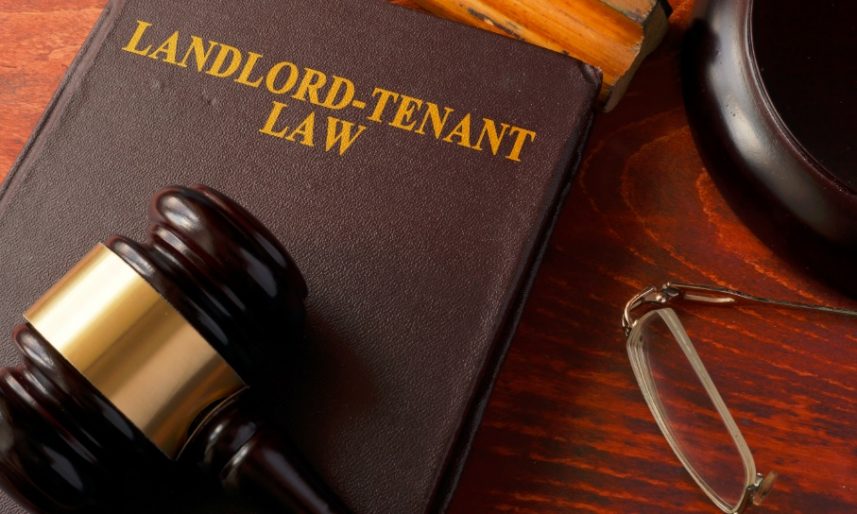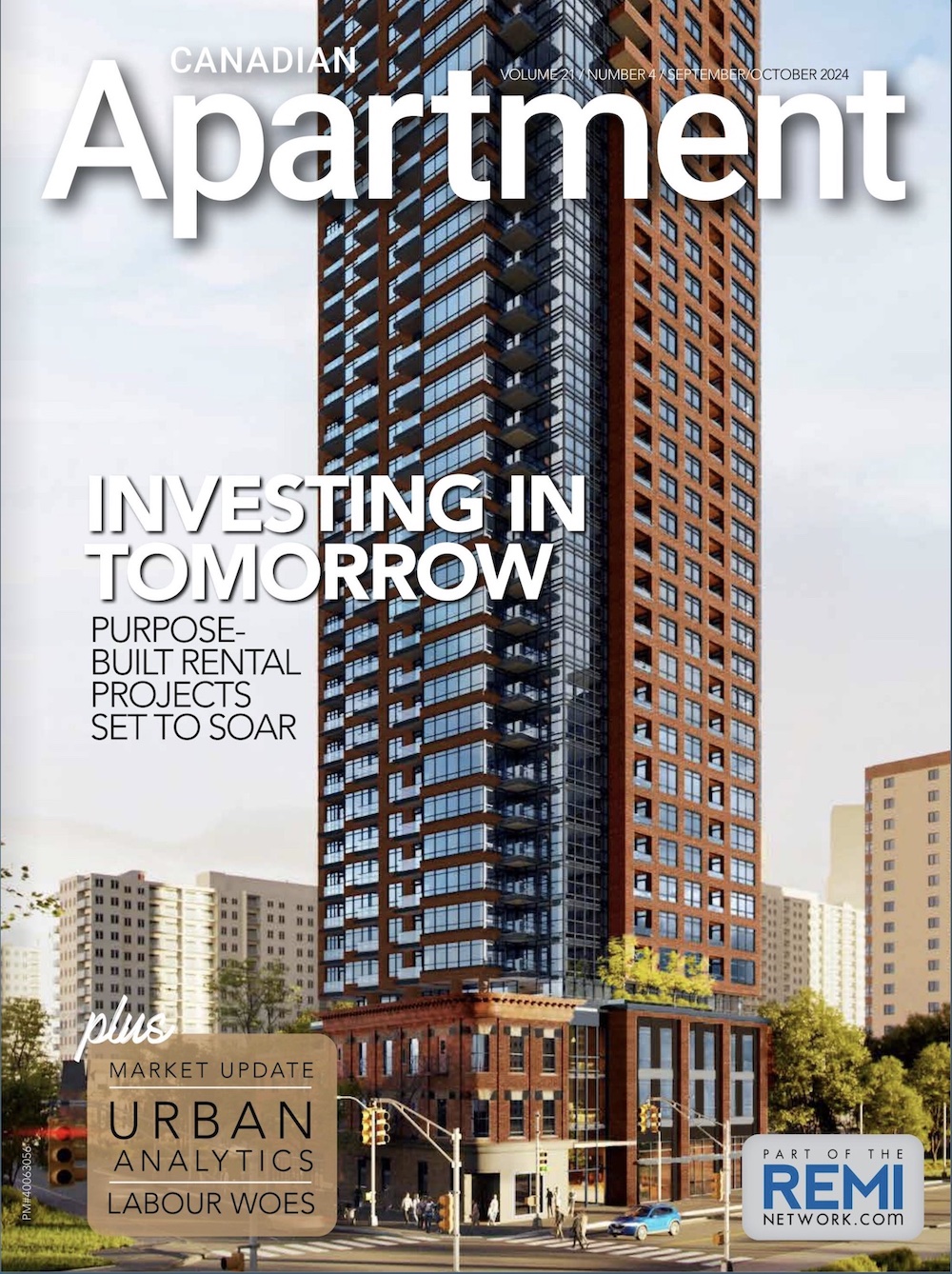Ontario’s “Protecting Tenants and Strengthening Community Housing Act”—otherwise known as Bill 184—has raised the ire of tenant advocacy groups in recent weeks over concerns it will drive cash-strapped renters further into debt while making evictions easier for landlords.
Since mid-March, Ontario rental-housing providers have been unable to evict non-paying tenants in an effort by the Province to protect vulnerable households impacted by COVID-related income loss. But as the health crisis eases and the moratorium on evictions comes to an end, the enactment of Bill 184 will require anyone with rent arrears to pay back their landlords in a structured repayment plan.
Sound fair and reasonable? To some onlookers it might, but for those on either side of the rental transaction, the bill isn’t gaining widespread support. Many small landlords—having been stretched too thin by the ongoing pandemic as it is—say the income loss they’ve incurred to date has already put their businesses in jeopardy.
“The net profit from a rental property is much lower than tenants, the media, and the government seem to think,” said Chris Seepe, president of the Landlords Association of Durham and owner of a mid-sized rental portfolio. “It’s these same entities who collectively believe residential landlords are playing the system and can afford to carry all the losses of COVID-19.”
Arguing that landlords shouldn’t be expected to absorb months of missed rent payments while shouldering the heightened costs of operating a rental property safely amid a pandemic, Seepe and other landlords are defending their right to retroactively collect unpaid rent—or evict those unable to honour the terms of their lease agreements. Meanwhile, tenant advocacy groups concerned that the bill will lead to a spike in evictions and eventual homelessness are calling for better protection for renters and more restrictions on future rent increases.
Kenneth Hale, the Director of Advocacy and Legal Services at the Advocacy Centre for Tenants Ontario (ACTO), contends that government programs are available to support businesses and can be expanded to help small landlords, while vulnerable tenants cannot afford to shoulder that cost. “Protecting public health must take priority over protecting the financial wealth of property owners,” he said in a statement. “Putting tenants in jeopardy of homelessness and increased poverty is cruel, and puts the lives of all Ontarians at risk.”
Key points of contention
At a hearing in late June, ACTO representatives urged members of the Social Policy Committee to scrap Bill 184 and adopt alternative recommendations it believes would better serve and protect vulnerable tenants. Primarily, the group raised concerns over the pressure the bill will put on COVID-impacted renters to sign repayment plans they cannot afford, permitting landlords to seek eviction orders without a hearing should they falter. But the recommendations put forth by ACTO were rejected in favour of amendments that will speed up the new eviction rules and force landlords and tenants into a mediation process.
According to Joe Hoffer of Cohen Highley LLP, the bill makes some practical changes that will benefit tenants and others that will benefit landlords, but the big problem is that it doesn’t address the bureaucratic and procedural paralysis of the Landlord and Tenant Board/Social Justice Tribunal.
“In my view the entire adjudicative structure has abandoned its statutory mandate to deal with proceedings expeditiously and cost-effectively and there is a cohort of “bad tenants” out there who cannot believe their good fortune while gloating about the fact that they can live rent free and the landlord can do nothing,” he said.
Adding to that, Hoffer warned that any small landlord who tries to avoid RTA rules in order to gain vacant possession to flip apartments are at risk of very harsh consequences. “Some innocent landlords will likely blunder into a situation where they are offside with the changes and will be greatly and unfairly harmed by the bill,” he said. “Other landlords abusing the current rules warrant the more rigorous legislative oversight.”
Hoffer also sees the two-year limitation on rent repayment as a potential source of concern. “The short time frame by which landlords must initiate formal proceedings at the LTB could significantly and negatively affect all involved,” he said. “Currently a landlord can go back six years when working with tenants to catch up with missed payments. If Bill 184 passes, the landlord will have to be rigorous in going after a tenant within the two-year time frame.”
On the positive side, the ability to recover charges such as unpaid utilities at the LTB rather than having to go to Small Claims Court, will make life easier for landlords. “However,” Hoffer said, “there is a gap in Bill 184 for the mobile home sector, where landlords will still have to go to Small Claims Court to recover unpaid property taxes and water testing charges even though the LTB is best equipped to adjudicate such changes.”
What ACTO wants in place of Bill 184:
- The continued restriction of evictions to urgent cases where public safety is at stake.
- Restricting rent increases to maintain current rent.
- Eliminating rent increases in newer units that are exempt from rent regulation as of November 2018.
- The limiting of “rent gouging” by landlords by restricting rent increases between tenancies.
- Assurance that the Landlord and Tenant Board’s rules make ongoing preservation of homes the object of the dispute resolution process.







Am I reading correctly—- that all new buildings in Ontario are exempt from Rent Contros as we now know ?
That pauses my intention to move to new building next Fall.
Thanks for the Article
In 2018 our corporate management was able to obtain a further 1.1 % rent increase for capital repairs, in addition to the annual guideline of 1.8%. They had originally claimed a 1.23% increase, which the Board slightly reduced.
This year the government guideline increase is 2.2.%, which is the highest since 2013, which was 2.5%. However, our management is asking for a total increase of $4.58038% which for us amounts to $60.20 per month. One doesn’t have to project such an increase very far into the future to realize that such rent increases will soon put these apartments out of reach for most seniors and others on fixed incomes.
I have a tenant been stopped paying rent as of January 2020. I tried to evict him and was scheduled for hearing in May, but LTB closed down. He can’t believe his good fortunes living tent free for most of 2020. I have zero income from rent. At the same time paying for his utilities, and shoulder the property taxes + mortgage. I hear the city is raising property taxes? Mr. Mayor/Premier: I can’t breathe!
Hi Jian
Your story resonates with my experience. I have a family renting my mom’s home ( a widow). She moved in with me, so we can save a little to pay off some of our debt. A family moved in (6 adults…father, mother, three adult children and the son’s girlfriend who is not even onbthe lease). They stopped paying rent in Jan 2020, did not pay utility at all from the time they moved in. Not only they are living rent free but I am paying for the utility they are using. I applied for eviction and got a court date in May which is cancelled. Our family is drowning in debt while these people host party everyday at my property with 15-20 people even when the province was on lockdown… had been regulars at the Casio before the lockdown…paying rent is not their priority. How unfair is this system! Housing is a service just like other services. Will it be acceptable to get a service from your car dealer for example and not pay for the service? How come it is ok to not to pay rent? I am small landlord and I am not rich. I was not lucky, I just worked hard, sometimes working around the clock. I need help…I am not sure what options I have!
We are in the exact situation. Our tenant stopped paying rent from Jan 2020. They have been giving excuses. They have not been paying water bill from the time they moved in. The eviction hearing for June was cancelled due to Covid. Water utility said that they will add the pending amount to the property tax. Our jobs are impacted by Covid and we have no option to get rent from the tenant or evict them. There is no waiver for mortgage, utility bills, property tax etc. So all the huge banks, utilities and government gets money even if it is Covid. Then why is government expecting regular landlords to let a tenant live free. If they are getting a service, they need to pay the service fee as per the agreement. The laws are so unfair towards landlords. I need help.
The current law is too unfair to landlord. The government should find a way to help low income tenant, but not the landlord. Any profit from the landlord will be tax back to the government. Let the landlord take the loss is really not the correct way.
Dear Jian Cao,
Your use of the phrase “I can’t breathe” outside of the context of racial equality is egregious. You are equivocating your financial livelihood with that of Black men and women fighting for the right to live in public without being summarily executed by police. I am disgusted by your privileged appropriation of that struggle. If ever again speaking in public and find yourself wanting to use such cute, racist verbiage, I hope you will pause and reconsider.
Sincerely,
Josh Harrower
It’s unreal to me that these tenancy advocacy groups expect the individual private property owner/small time landlord to house people for free. It presently takes about three months to obtain a date before the LTB locally, then acquire the services of the Sheriff’s office takes another 3-6 weeks For a tenant not paying rent. This was BEFORE Co-vid. The laws have been skewed in favour of the tenants under some misperception that if you own a rental you’re rich. So the benefit that you get for working hard and saving every dime to get ahead is to be housing people for free? Has anyone conducted a study as to how many evictions take place as a result of tenant damage and non payment versus landlord negligence in tenant applications? I think Such a study would reveal the number of bad tenants out there who have benefitted from non payment for months at the expense of the landlord rather than public housing. Public housing exists for so called “vulnerable” tenants. If there isn’t enough housing, well that should come from the backs of the entire population’s tax contributions and not on the backs of the individual landlord who under the present scheme is forced to provide free housing. Remember many of these tenants are judgment proof due to being on a disability or other public funds. So good luck collecting your rents.
Anna C
Free housing? God forbid he should disrupt the profit before people agenda.
You clearly literate your disdain for those with disabilities and their means of survival through public funding.
A funding to boot that only throws a tattered life saving jacket that barely keeps one afloat still leaving them to drown in the rough seas, NEVER a good life saving jacket or even a working one to provide enough support to pull them to shore to join the rest of society. You talking about THAT public funding?
Has to be – there’s nothing else.
The government should provide more funds for that.
The landlords just provide service. It’s not right that use the service but not pay for it.
The lawmakers and representatives of tenants really do things wrong. They should make the law fair to both sides, but not fair to one side. landlord is minority. Only a few of big organizations are rich. The majority of small landlords barely make a living. Compare to tenants, the number of small landlords is much smaller.
Hi,
I posted earlier too…this is the first time I have rented my property and I have suffered psychologically which I cannot put a price on along with the financial loss. The Tenant advocacy groupS talk about “Uneven playing field” but in my situation I am afraid of the tenants living on my property, not the other way around. They took advantage of my weak point, I felt SORRY when they begged me to rent my property. I believed them when they Said they are good people.
From reading the above posts, it is clear that many of these tenants have stopped paying rent long before COVID. What will happen in these situation? Our hearings were scheduled prior to COVID…shouldn’t it be taken into consideration?
When the state of emergency is lifted on July 24, would the LTB open and resume operation normally?
I have my lease coming to an end on Sept 30, 2020. I am planning to sell my house, I cannot keep up The house with the debt I have. Please any advice on what I can do. Thank you.
I’m in the same situation, LTB is not doing anything, my tenant subleasing my property without my knowledge, didn’t allow me to go inside and doing party smoking hukkah, burned my floor , run away putting garbage’s, without paying. Being land lord in this country and city is a curse . All landlord should think to do some thing.